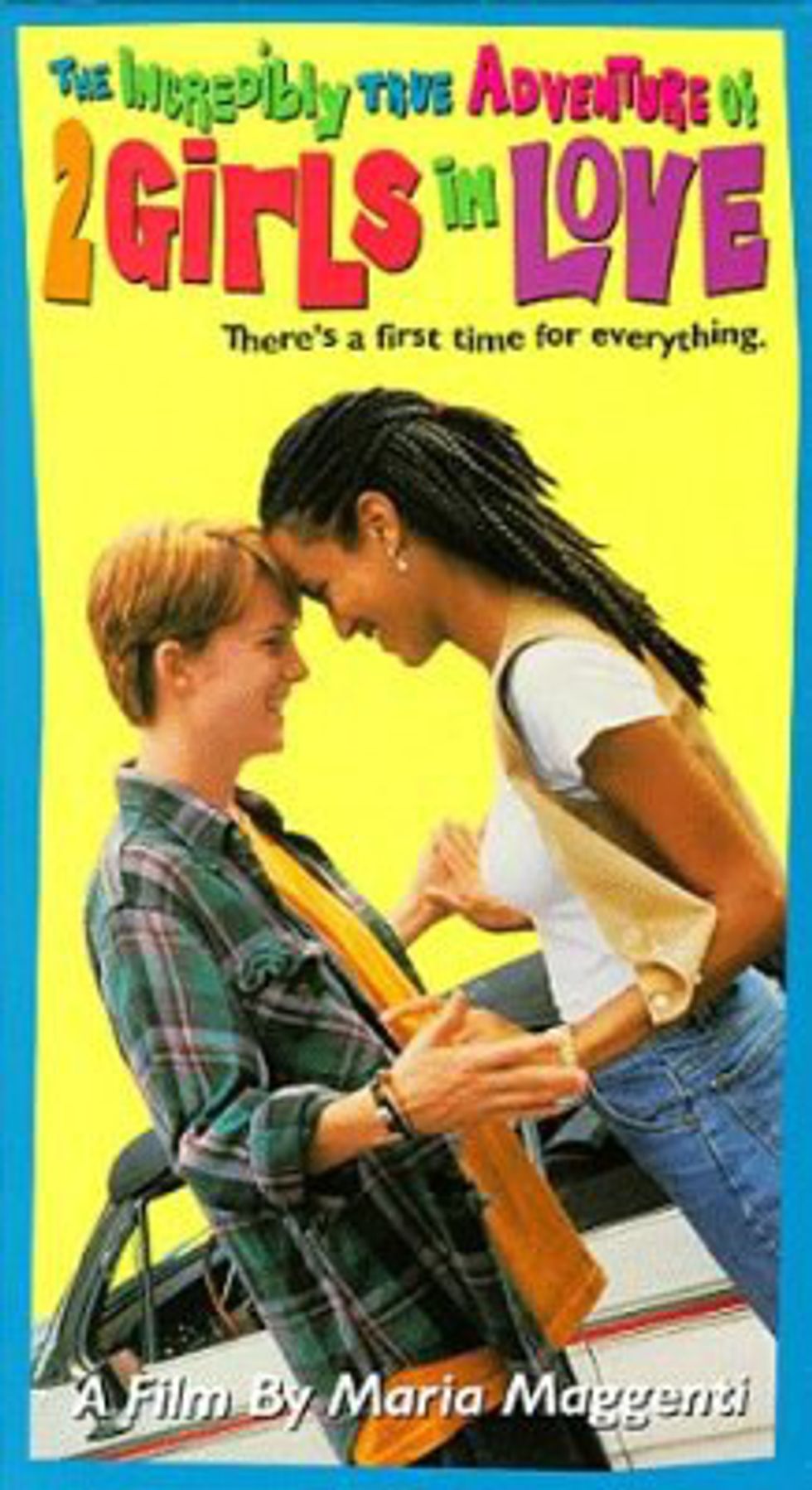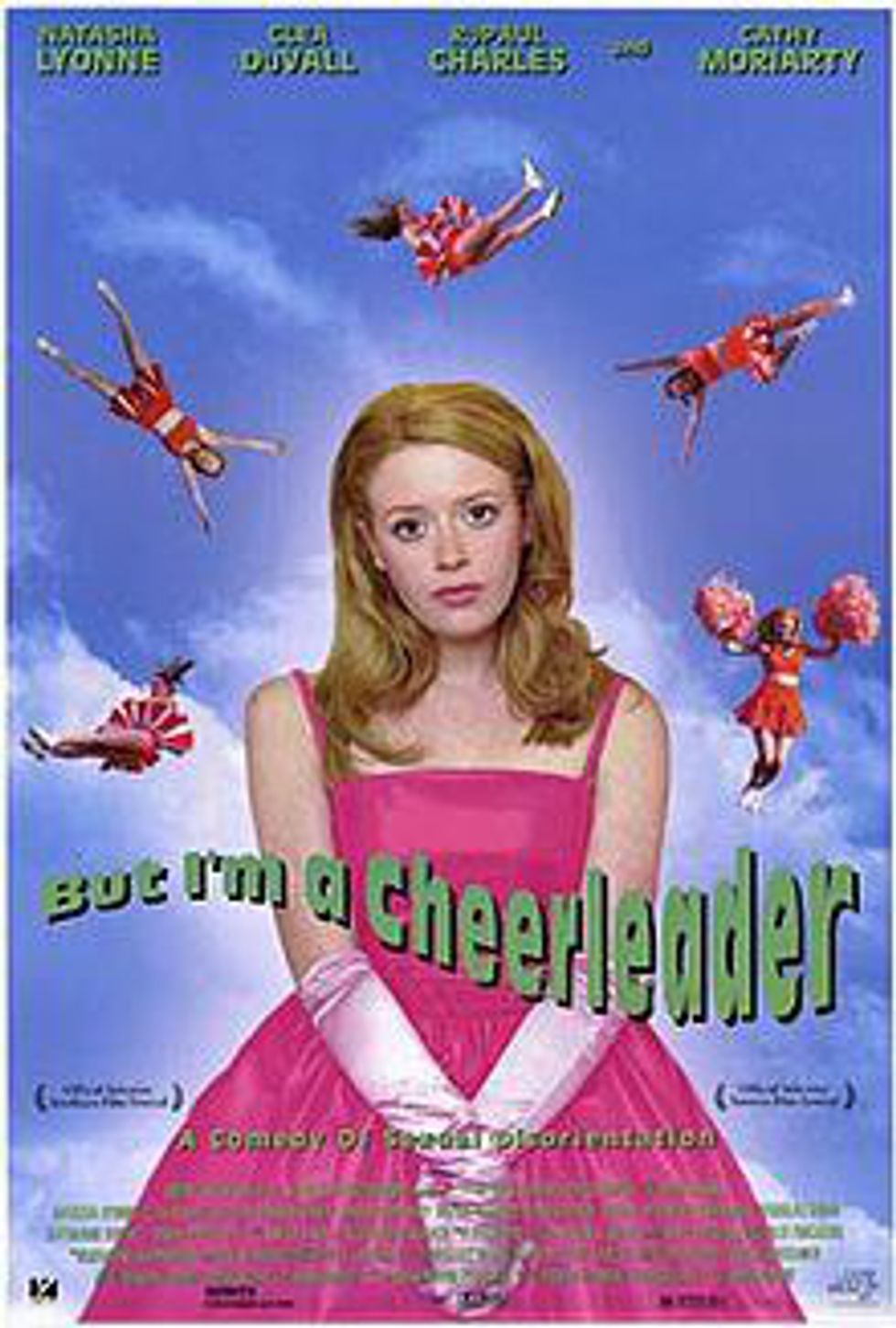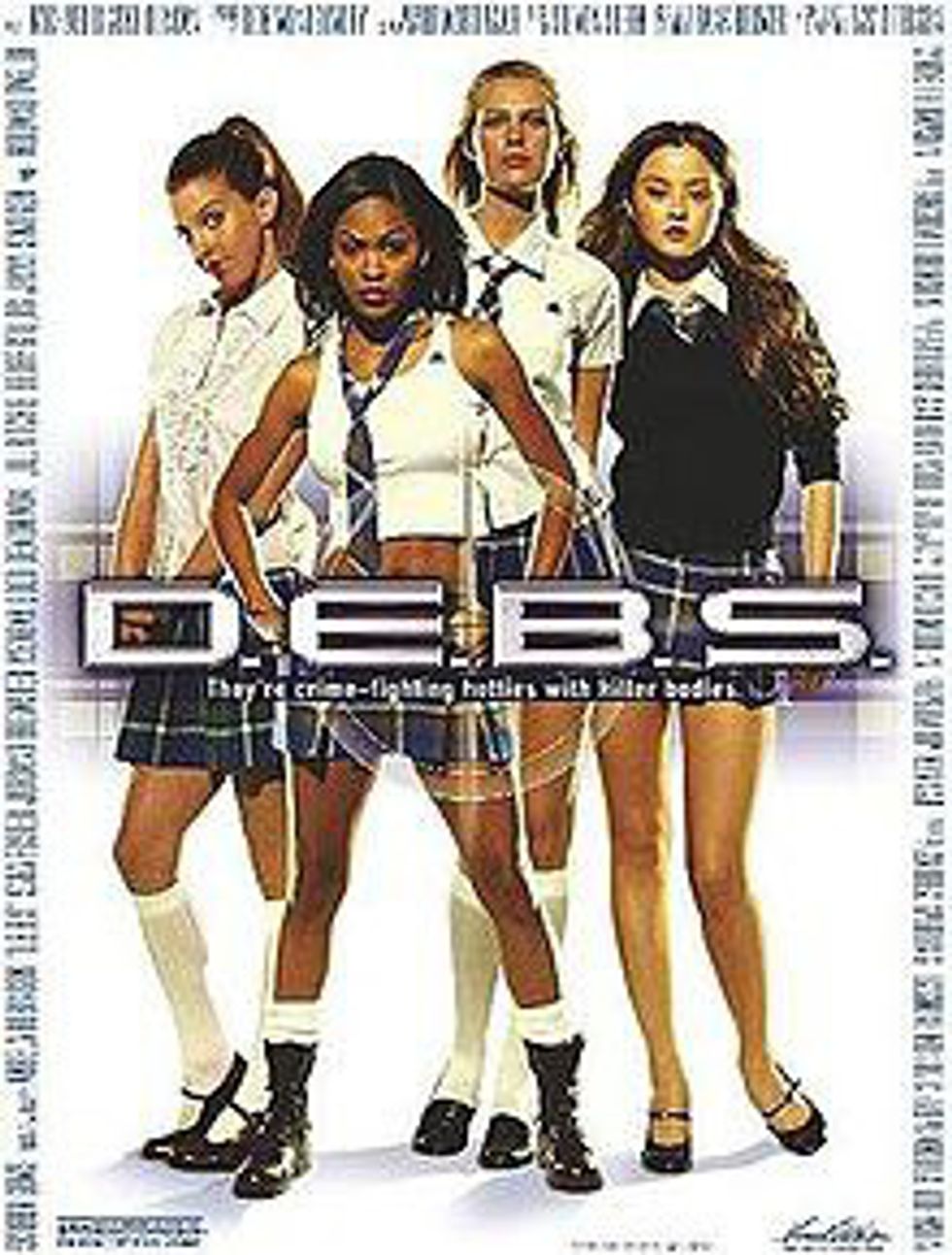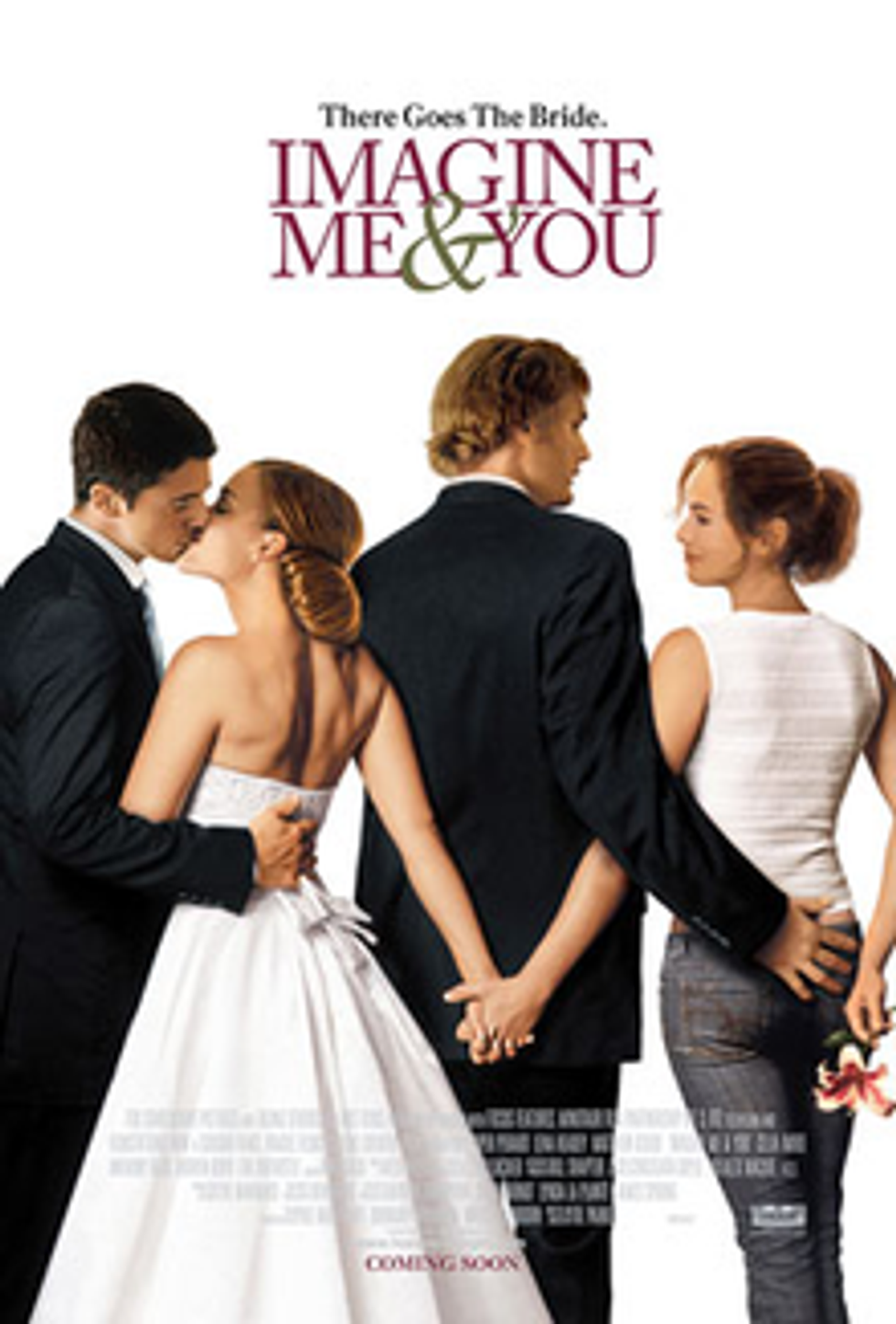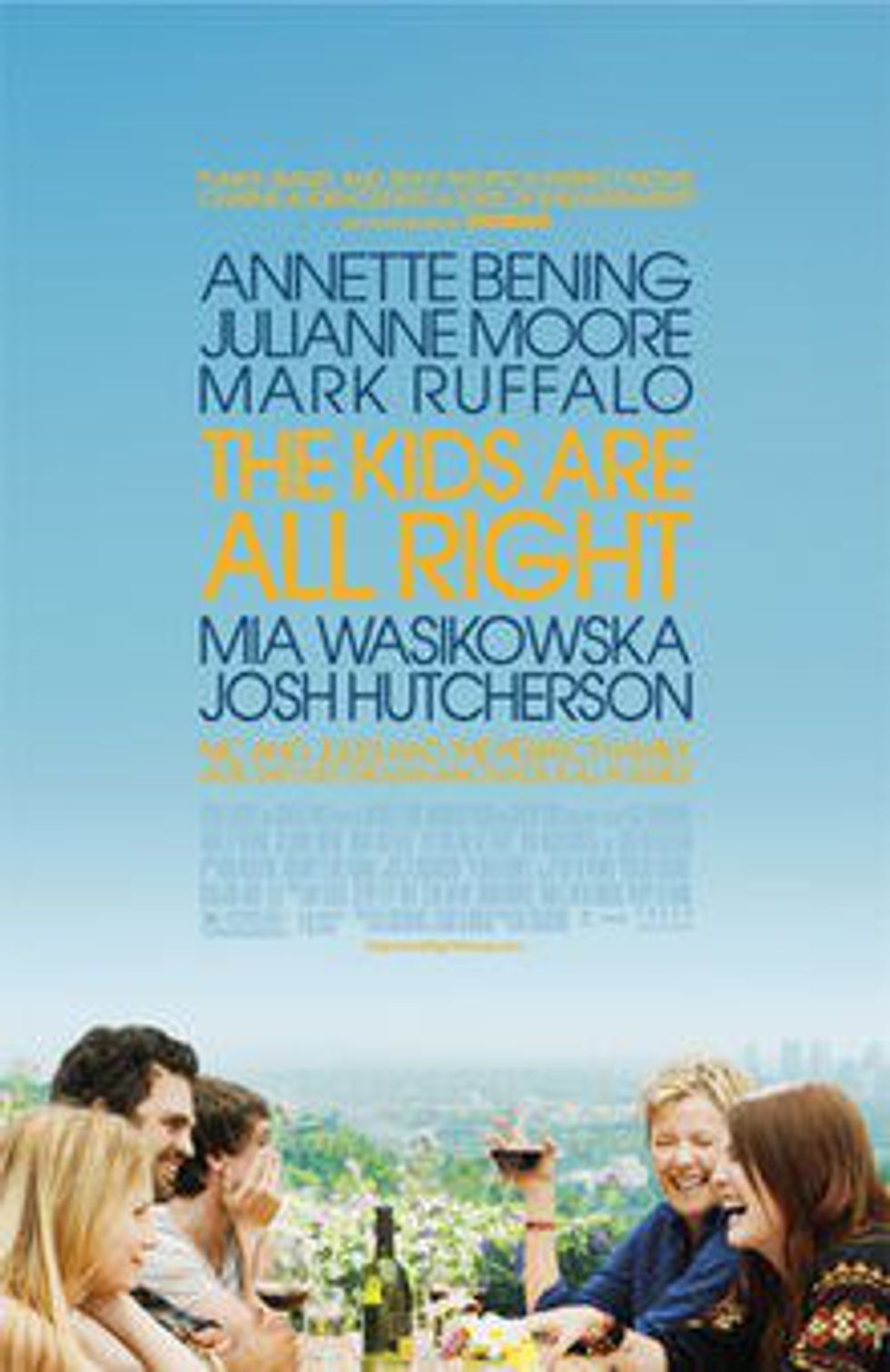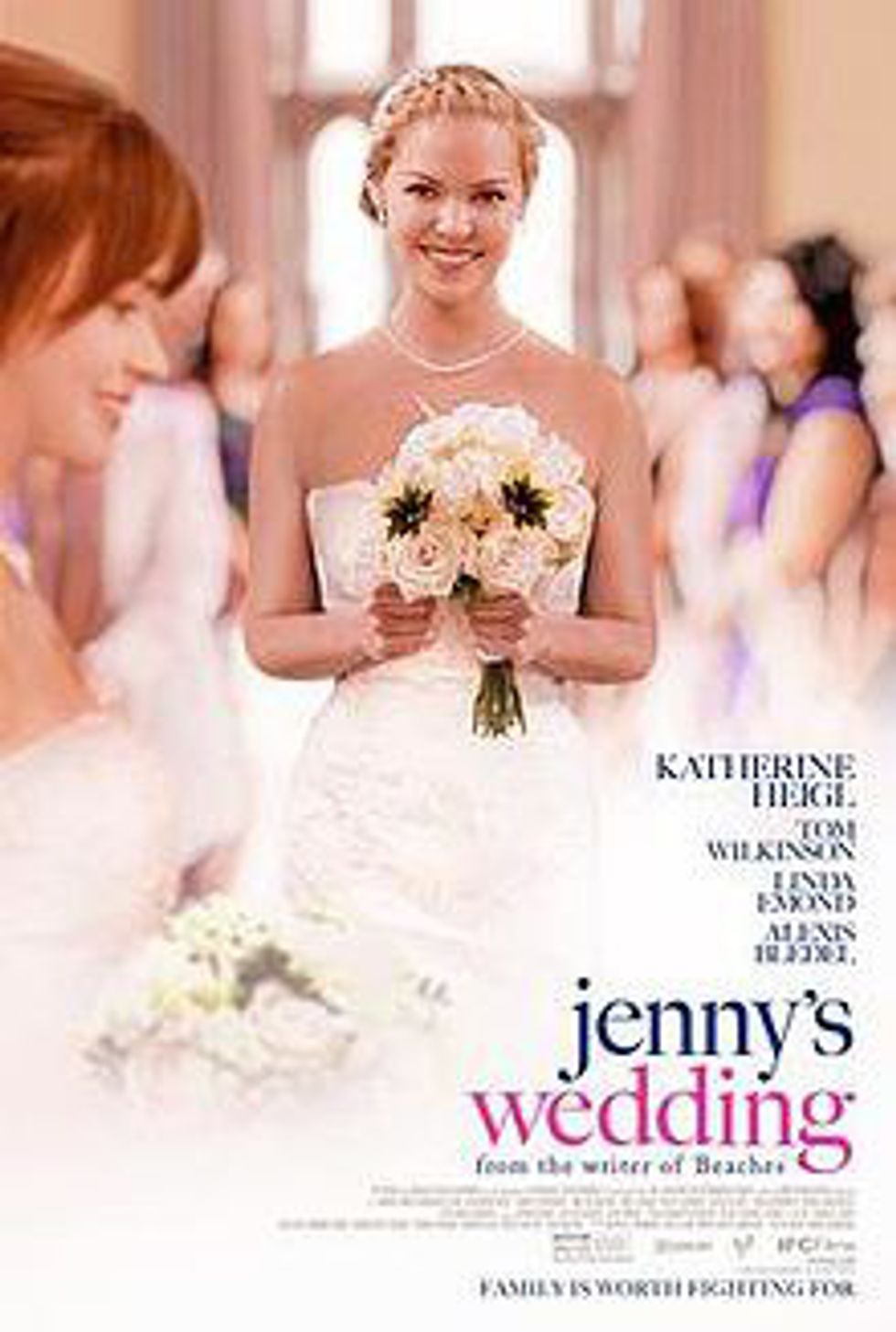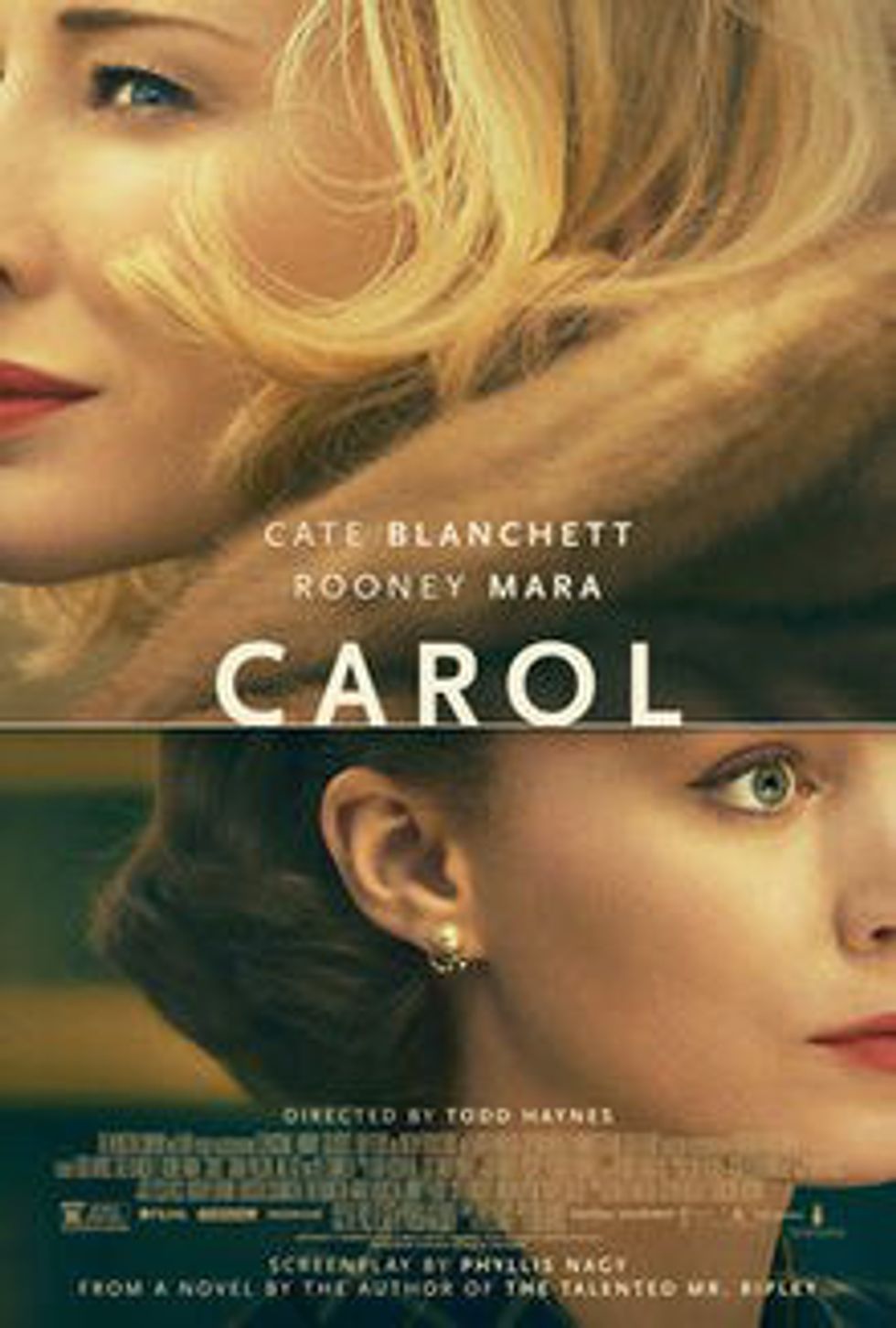WARNING: So. Many. Spoilers.
Queer women and their love stories, when you can actually find them in films, usually end in tragedy -- or at least don’t end happily. Don’t get me wrong: some of these movies are great. "Mosquita and Mari" is a beautiful portrayal of first love that is neither exploitive or dumbed down. But for every "Mosquita and Mari," there are 10 "lesbian tragedy porns" -- usually written by men who I am pretty sure have never actually met a women -- that litter Netflix and YouTube. These are filled with lines like, “But what if my husband finds out?,” and “But this is wrong,” and “But I am not gay.” These films end in death, suicide, and women dutifully returning to their husbands. While not all lesbian tragedies are that bad, sometimes you just want a happy ending. So I'm giving you just that. When you are in the mood for a couple of happy queer girls in love, these are the movies for you.
1. "Incredibly True Adventures of Two Girls in Love" (1996).
Randie and Evie don’t have anything in common. Randie is unmotivated, and unhappy, stuck in a dead-end affair with a married woman. Evie apparently has it all, living with her affluent, cultured single mother. When they become friends, sparks fly, and before you know it, neither one will ever be the same.
Written and directed by bisexual activist Maria Maggenti, the film is subversively hopeful, and the ending is almost shockingly sweet. I won’t spoil it for you, but it’s a miracle that this movie came out 20 years ago.
2. "But I’m a Cheerleader" (1999).
Cheerleader Megan is accused of being a lesbian in an AA-style intervention. The reasoning: the Melissa Etheridge poster on her bed room wall. She is then sent to a "Conversion Camp," which is supposed to train the gay away with a series of exercises about gender roles and finding the "root" of gayness. Megan, in between childbearing classes and group therapy, falls for the bad girl with a heart of gold, Graham, and chaos ensues.
OK, so I will fight anyone who says this movie isn’t awesome, including Rotten Tomatoes. Look, this movie is not for everyone, its satire borders on absurd, the performances are over the top, and the premise is crazy. The bright colors, Rupaul, and the campy performances by pretty much everyone disguise what is a very sweet story: the story of self-acceptance, first love, and finding your way, even when everyone is telling you otherwise.
3. "D.E.B.S." (2004).
"D.E.B.S" is a story about a secret military organization where the young ladies wear sexualized Catholic schoolgirl paraphernalia and live in a sorority-like suburban house. Good girl Amy ends up flirting, being kidnapped by and running away with Lucy, Lucy Diamond. Yes, that is the actual name of the character, and she’s a thief who specializes in stealing jews -- obviously.
So this movie makes "But I'm a Cheerleader" look sane. It is not a "good" movie by any means, and I would totally get if it's not your thing. It's a lot of sunshiney, silly, campy fluff: the dialogue, the over-the-top acting, so much green screen, and a huge musical number for no reason. If you want to laugh at (or along with) a movie where two queer women literally ride off into the sunset together, this is the movie for you.
3. "Imagine Me and You" (2005).
Rachel is getting married to good guy Hector when she meets Luce, the florist and out-and-proud lesbian. Sparks fly and the rest of the movie is trying to figure out what that means as Luce and Rachel get closer with football, Dance Dance Revolution, and the language of flowers.
This movie has all the glossy features of a tried-and true romantic comedy of the mid-2000s: fun pop soundtrack, beautiful actors, and panoramic shots of London. It also gives a great representation of figuring out who you are, and how that journey has consequences for those around you. This is an optimistic love story where love conquers all and no one is the bad guy -- no small feat for a movie which is one of the only queer additions to the genre.
4. "The Kids Are All Right" (2010).
Nic and Jules are a well-to-do married couple with two children, Joni and Laser, biological half-siblings who have the same sperm donor. When Joni turns 18, after her younger brother begs her, she finds her father, a bohemian restaurateur named Paul, and chaos ensues.
This movie is a superbly acted and written story about growing up, and perfectly depicts what happens when you have already grown up but are still not sure what your place in the world is. This story deals with alcohol dependence and extramarital affairs, but at the heart of the story is a family. This movie might not be the happiest happy ending on the list, but it is a hopeful and honest love story that is worth checking out.
5. "Jenny’s Wedding" (2015).
Jenny hasn’t come out to her parents about her years-long relationship with girlfriend Kitty. Now that they want to get married, and hopefully adopt a child, they will have to rock the world of Jenny’s conservative, stuck-in-their-ways family.
This is a very imperfect movie, with melodramatic overtones and a dragging pace, but ultimately, the positives out-way the negatives. There are genuinely good performances, especially from Tom Wilkinson and Linda Emond, who humanize parents who don’t understand their daughter's life but love her and want to support her. Ultimately what makes the movie worth seeing is the wedding -- something we rarely get to see in queer films. So in that way, this little film is exceptional.
6. "Carol" (2015).
Therese is a shopgirl in the early 1950s who returns a pair of gloves to an older woman, Carol. This small interaction changes their lives forever as they navigate an unfriendly world and ultimately fall for each other.
There are few things in this movie that are not perfect: gorgeous costumes, beautiful sets, and pitch-perfect direction from Todd Haynes, who never lets the camera fall into the territory of exploitation or male gaze. The best part of this movie, though, is its performances, and primarily its two leads: Cate Blanchett plays Carol with class, grace, and quiet strength -- one courtroom scene towards the end of the film will leave you speechless. Maybe even more incredible is Rooney Mara’s Therese, who doesn’t get overshadowed by powerhouse Blanchett, and instead gives a subtle, haunting portrayal of a young woman finding her identity within another person and then within herself.
The film's last shot is unbelievably hopeful, a real you-want-to-give-a-standing-ovation-even-when-watching-at-home-by-yourself scene. Trust me, it’s that good.
What are you still doing here? Go watch your queer happy endings!


